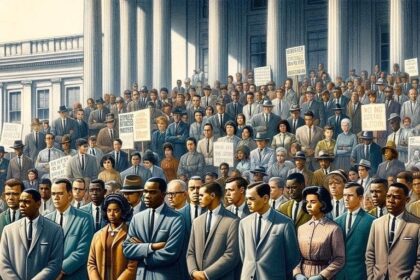Some of the world’s greatest businesses are born not just from opportunity, but from adversity. For one entrepreneur, heartbreak became the unlikely spark behind a billion-dollar brand. What began as a deeply personal struggle turned into a company that would resonate with millions, raise venture capital, and ultimately achieve unicorn status.
This story highlights a powerful truth: failure in love or life can ignite creativity and resilience. Where some see endings, visionary founders see beginnings.

From Personal Pain to Market Insight
Entrepreneurs often solve problems they know intimately. After a devastating breakup, the founder at the center of this story realized there was no product, service, or community that adequately supported people going through the emotional fallout of separation. Instead of simply enduring the pain, they began designing solutions that blended psychology, technology, and lifestyle branding.
This shift from personal pain to market insight is a common thread among unicorn founders. Airbnb’s co-founders faced financial instability before renting out air mattresses. Bumble’s Whitney Wolfe Herd built a female-first dating app after experiencing harassment and sexism in tech. In each case, personal struggle created the empathy and urgency needed to build solutions that scaled.
The Business of Healing and Reinvention
The brand that emerged from this breakup was not just about selling a product. It was about creating a movement. By positioning itself at the intersection of wellness, community, and consumer experience, the startup tapped into a universal truth: everyone knows heartbreak.
Through clever branding, transparent storytelling, and digital-first engagement, the company created a loyal following. Early adopters weren’t just customers they were participants in a cultural reframe that said heartbreak isn’t weakness, it’s transformation.
Why Vulnerability Sells in Today’s Market
Modern consumers reward authenticity. A Harvard Business Review study found that 64% of consumers cite “shared values” as the main reason they form relationships with brands. By openly connecting its founding story to a breakup, the unicorn gained credibility, relatability, and trust.
This kind of vulnerability humanizes a brand. Instead of positioning itself as perfect, it showed scars and resilience. That transparency differentiated it in a crowded market and attracted investors who saw not just a product, but a brand with emotional equity.
Scaling Heartbreak Into a Unicorn
Turning pain into profit is one thing; scaling it into a billion-dollar valuation is another. This company leveraged three strategies:
- Community-first growth. The startup built forums, events, and digital spaces where users could connect and share stories.
- Strategic product diversification. From digital platforms to lifestyle products, it grew beyond a single service.
- Investor alignment. By pitching the brand as both commercially viable and socially transformative, the founder secured backing from VCs eager to fund culturally resonant ventures.
By year five, the brand had reached unicorn status a testament not only to savvy business moves, but to the founder’s ability to turn vulnerability into vision.
Lessons for Entrepreneurs
The “breakup-to-unicorn” story offers several insights:
- Personal pain is market insight. Your biggest struggles can reveal unmet needs others share.
- Authenticity attracts loyalty. Sharing a genuine story can become your most powerful marketing tool.
- Community is currency. Brands that make people feel less alone create lasting value.
- Transformation sells. Consumers don’t just buy products; they buy the promise of growth, renewal, and identity.

Conclusion: Endings as Beginnings
The breakup that could have ended one entrepreneur’s confidence instead became the foundation of a unicorn brand. It’s a reminder that personal pain is not the opposite of success, it can be the soil from which success grows. In business, as in life, endings often carry the seeds of bold new beginnings.






